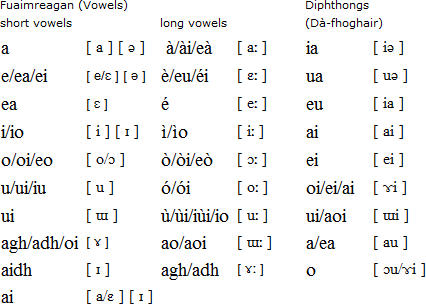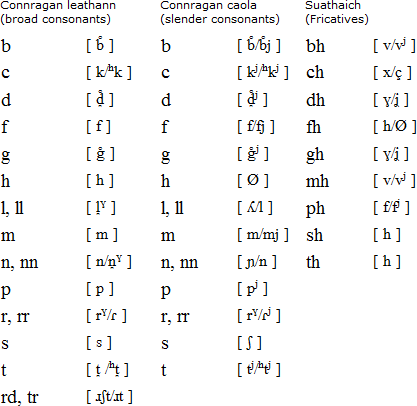Here is a list with my best shot at an IPA (International Phonetic Alphabet) pronunciation guide. I also use APA (American Phonetic Alphabet) at times. I apologize if I mix them a bit. You will notice that the pronunciation of the words often doesn't sound at all like they are spelled. Yay.
You can also find a native speaker pronouncing these words if you download the free program BYKI for Scottish Gaelic.
Hello/How
are you – Ciamar a tha sibh [kɪmara ha: ʃɪf]
Greetings!
– Fàilte! [fa:lčə]
No
– 1) chan eil [han yɛl] 2) chan è [han ɛ:]
Yes
– (present) tha [ha:] (past)
bha [va:]
Goodbye
– Mar sin leibh [marʃɪn lev]
Thank
you – Tapadh leibh [tapa lev]
Good
afternoon – Latha math [la: ma:]
Good
evening – Feasgar math [fɛsgr ma:]
Good
morning – Madainn mhath [makin va:]
Good
night – Oidhche mhath [ayʃə va:]

